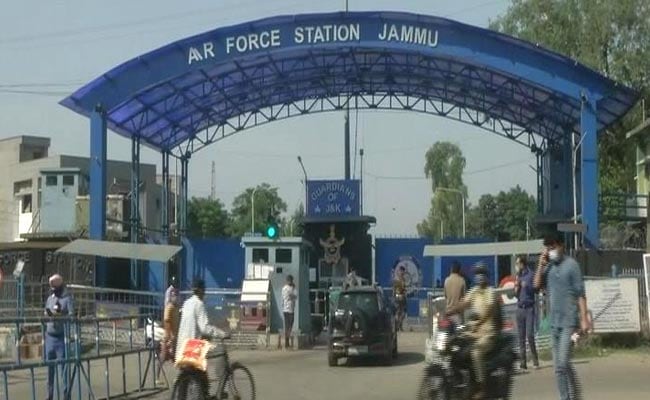Lt Gen DP Pandey is the Corps Commander for the 15 Corps stationed in Srinagar
The technology used in Sunday's drone strikes on an Air Force base at Jammu airport indicate "state-support" and involvement of Pakistan-based Jaish-e-Mohammed and Lashkar-e-Taiba, Lt General DP Pandey, Corps Commander of the 15 Corps in Srinagar, told NDTV on Wednesday.
General Pandey said the Army is "well aware these assets and tech - like drones and drone warfare - are state-supported systems" and that such threats may continue and even increase.
He stressed, however, that the armed forces will look to stay ahead of such threats and is exploring options and proactive solutions to address any and all challenges to national security.
"We are well aware that these assets and tech - drone warfare, for example - cannot just be made on the roadside. These indicate state-supported systems and technology... and state supported, or state sponsored, technology definitely indicates Jaish and Lashkar," Gen Pandey told NDTV.
He expressed caution about revealing details of the ongoing investigation, but said an initial analysis of data indicated "a certain level of guidance from state actors".
"The capability or capacity exists to modify drones, which are locally available as well... with a certain level of guidance from state actors, they can be modified to carry out these attacks," the General replied when asked if the drones were locally operated or were flown across the border.
Over the past couple of years there have been reports of Pakistan using drones to drop weapons across the border.
In Punjab in August 2019, a crashed drone was found in a village in Amritsar. The following month, terrorists arrested by security forces allegedly revealed drugs and weapons had been dropped in the state over eight separate drone flights.
In June last year, the BSF shot down a suspected spy drone in the Kathua district of Jammu; the next a network of tunnels across the border was found.

Two minor explosions occurred at the Air Force base at Jammu Airport on Sunday (File)
The General's observation concurs with what Jammu and Kashmir police chief Dilbagh Singh told NDTV on Monday - that Lashkar-e-Taiba was likely involved in the Sunday attack and may also have been behind drones spotted near a military facility on Monday.
Suspicions about a Lashkar link came after a suspected operative from Banihal was arrested. The 22-year-old had an explosive device weighing four kg and was arrested hours after Sunday's blasts.
"This threat is live and going to keep on increasing... but we are aware and have taken advanced measures over the past few days to re-orient ourselves. As a unit, the Army is looking for proactive solutions and I am very confident that we can take care of this challenge as well," the General said.
General Pandey also indicated a link between the level and intensity of terror attacks in Jammu and Kashmir and the relative stability of the region. He told NDTV the Kashmir Valley security situation was potentially the best in the past four or five years.
"Every time there is stability in the Kashmir Valley, or the Jammu and Kashmir region, as we have seen recently, there will always be the introduction of new systems or actors to counter this... and the next level in this is greater deniability - an attempt to say this is possibly internal," he said.
"But we know where the idea is coming from... where the support mechanisms and technology are coming from. We need to keep a watch and hold them responsible," the General stressed.
Sunday's terror strike - in which two IAF personnel suffered minor injuries - is being investigated by the NIA, and an FIR has been filed under the stringent anti-terror law UAPA.
Track Latest News Live on NDTV.com and get news updates from India and around the world

